Kiyeob Lee
An Active Learning-based Approach for Hosting Capacity Analysis in Distribution Systems
May 13, 2023



Abstract:With the increasing amount of distributed energy resources (DERs) integration, there is a significant need to model and analyze hosting capacity (HC) for future electric distribution grids. Hosting capacity analysis (HCA) examines the amount of DERs that can be safely integrated into the grid and is a challenging task in full generality because there are many possible integration of DERs in foresight. That is, there are numerous extreme points between feasible and infeasible sets. Moreover, HC depends on multiple factors such as (a) adoption patterns of DERs that depend on socio-economic behaviors and (b) how DERs are controlled and managed. These two factors are intrinsic to the problem space because not all integration of DERs may be centrally planned, and could largely change our understanding about HC. This paper addresses the research gap by capturing the two factors (a) and (b) in HCA and by identifying a few most insightful HC scenarios at the cost of domain knowledge. We propose a data-driven HCA framework and introduce active learning in HCA to effectively explore scenarios. Active learning in HCA and characteristics of HC with respect to the two factors (a) and (b) are illustrated in a 3-bus example. Next, detailed large-scale studies are proposed to understand the significance of (a) and (b). Our findings suggest that HC and its interpretations significantly change subject to the two factors (a) and (b).
OpenGridGym: An Open-Source AI-Friendly Toolkit for Distribution Market Simulation
Mar 06, 2022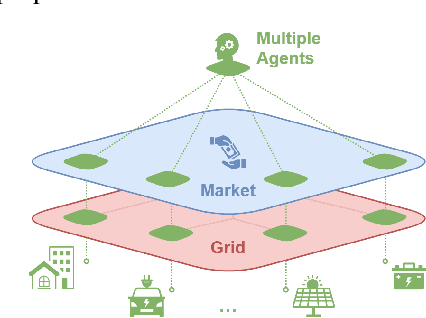
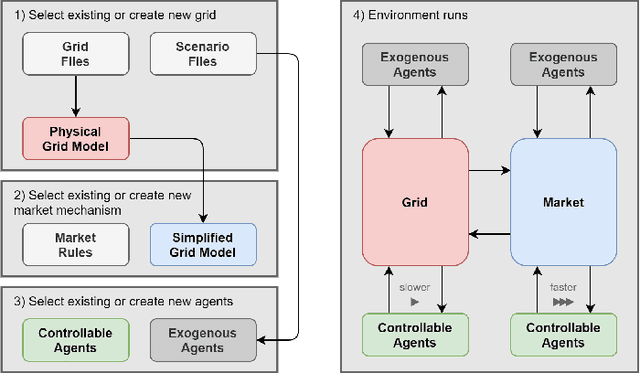

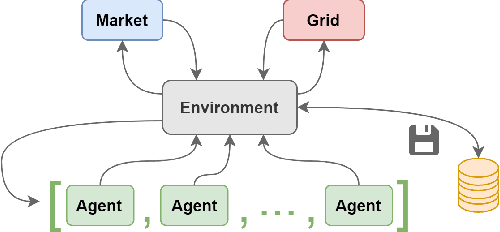
Abstract:This paper presents OpenGridGym, an open-source Python-based package that allows for seamless integration of distribution market simulation with state-of-the-art artificial intelligence (AI) decision-making algorithms. We present the architecture and design choice for the proposed framework, elaborate on how users interact with OpenGridGym, and highlight its value by providing multiple cases to demonstrate its use. Four modules are used in any simulation: (1) the physical grid, (2) market mechanisms, (3) a set of trainable agents which interact with the former two modules, and (4) environment module that connects and coordinates the above three. We provide templates for each of those four, but they are easily interchangeable with custom alternatives. Several case studies are presented to illustrate the capability and potential of this toolkit in helping researchers address key design and operational questions in distribution electricity markets.
Learning Trembling Hand Perfect Mean Field Equilibrium for Dynamic Mean Field Games
Jun 21, 2020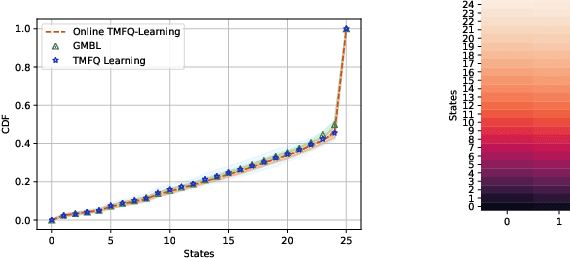
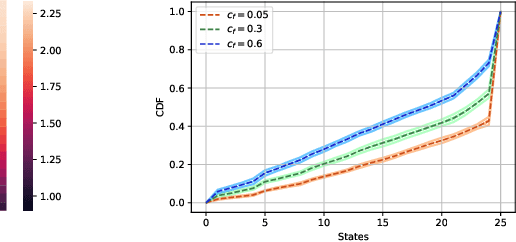

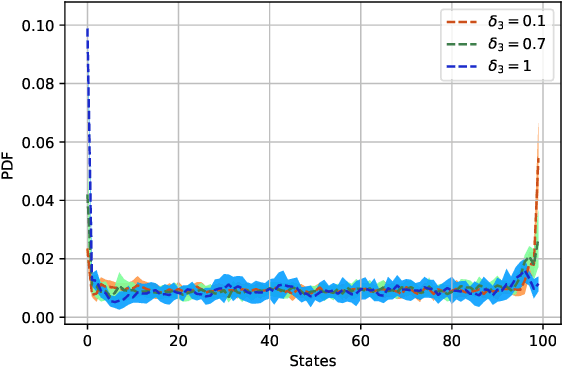
Abstract:Mean Field Games (MFG) are those in which each agent assumes that the states of all others are drawn in an i.i.d. manner from a common belief distribution, and optimizes accordingly. The equilibrium concept here is a Mean Field Equilibrium (MFE), and algorithms for learning MFE in dynamic MFGs are unknown in general due to the non-stationary evolution of the belief distribution. Our focus is on an important subclass that possess a monotonicity property called Strategic Complementarities (MFG-SC). We introduce a natural refinement to the equilibrium concept that we call Trembling-Hand-Perfect MFE (T-MFE), which allows agents to employ a measure of randomization while accounting for the impact of such randomization on their payoffs. We propose a simple algorithm for computing T-MFE under a known model. We introduce both a model-free and a model based approach to learning T-MFE under unknown transition probabilities, using the trembling-hand idea of enabling exploration. We analyze the sample complexity of both algorithms. We also develop a scheme on concurrently sampling the system with a large number of agents that negates the need for a simulator, even though the model is non-stationary. Finally, we empirically evaluate the performance of the proposed algorithms via examples motivated by real-world applications.
 Add to Chrome
Add to Chrome Add to Firefox
Add to Firefox Add to Edge
Add to Edge